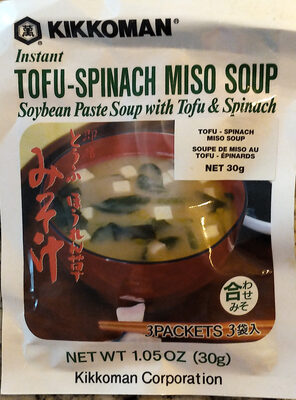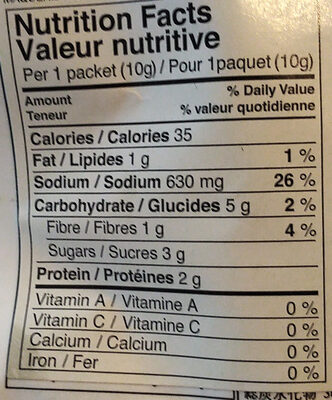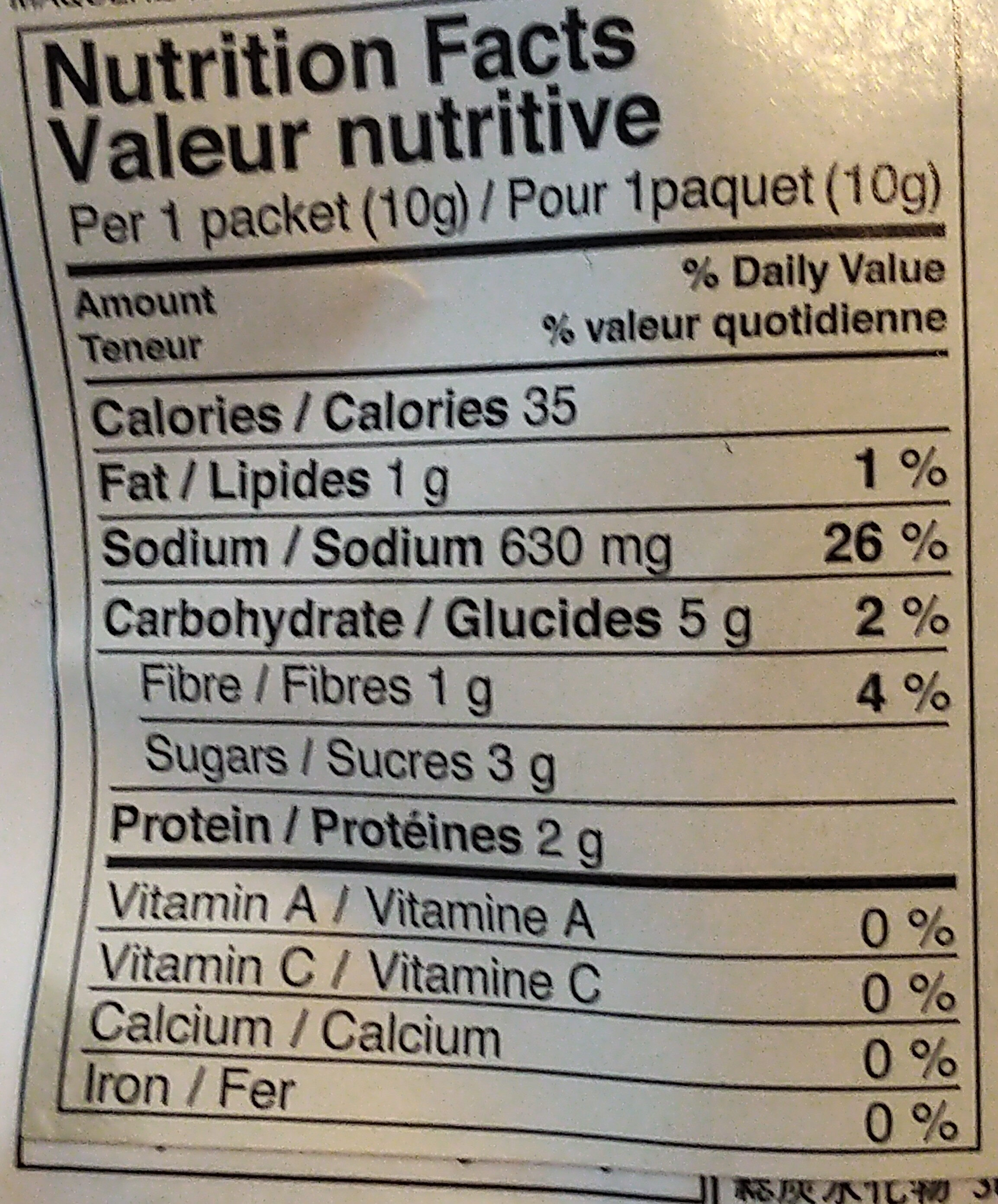Instant Tofu-Spinach Miso Soup - Kikkoman - 1.05 oz (30 g)
This product page is not complete. You can help to complete it by editing it and adding more data from the photos we have, or by taking more photos using the app for Android or iPhone/iPad. Thank you!
×
Barcode: 0041390030666 (EAN / EAN-13) 041390030666 (UPC / UPC-A)
Common name: soybean paste soup with tofu & spinach.
Quantity: 1.05 oz (30 g)
Packaging: Mixed plastic-packet
Brands: Kikkoman
Brand owner: Kikkoman Sales USA, Inc.
Categories: Meals, Dried products, Dried products to be rehydrated, Soups, Dried meals, Dehydrated soups, Miso soup
Origin of ingredients: Japan
Manufacturing or processing places: Tokio, Japón
Traceability code: 080503010029
Countries where sold: Bolivia, Canada, United States
Matching with your preferences
Environment
Packaging
Transportation
Report a problem
Data sources
Product added on by usda-ndb-import
Last edit of product page on by 5m4u9.
Product page also edited by magician, org-database-usda, swipe-studio.








